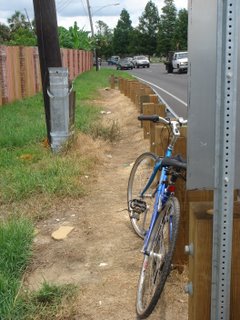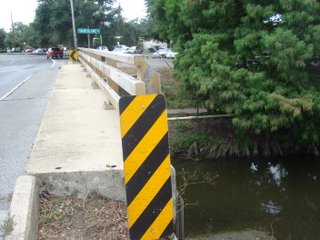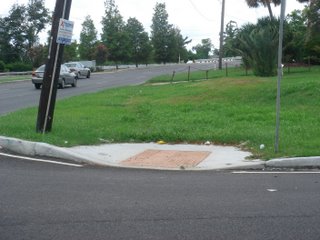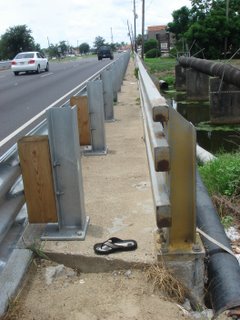From the June 11, 2006 edition of the New York Times.
Opposing Viewpoints Resource Center: When a Risque Online Persona Undermines a Chance for a Job.
Full Text: COPYRIGHT 2006 The New York Times Company
When a small consulting company in Chicago was looking to hire a summer intern this month, the company's president went online to check on a promising candidate who had just graduated from the University of Illinois.
At Facebook, a popular social networking site, the executive found the candidate's Web page with this description of his interests: ''smokin' blunts'' (cigars hollowed out and stuffed with marijuana), shooting people and obsessive sex, all described in vivid slang.
It did not matter that the student was clearly posturing. He was done.
''A lot of it makes me think, what kind of judgment does this person have?'' said the company's president, Brad Karsh. ''Why are you allowing this to be viewed publicly, effectively, or semipublicly?''
Many companies that recruit on college campuses have been using search engines like Google and Yahoo to conduct background checks on seniors looking for their first job. But now, college career counselors and other experts say, some recruiters are looking up applicants on social networking sites like Facebook, MySpace, Xanga and Friendster, where college students often post risque or teasing photographs and provocative comments about drinking, recreational drug use and sexual exploits in what some mistakenly believe is relative privacy.
When viewed by corporate recruiters or admissions officials at graduate and professional schools, such pages can make students look immature and unprofessional, at best.
''It's a growing phenomenon,'' said Michael Sciola, director of the career resource center at Wesleyan University in Middletown, Conn. ''There are lots of employers that Google. Now they've taken the next step.''
At New York University, recruiters from about 30 companies told career counselors that they were looking at the sites, said Trudy G. Steinfeld, executive director of the center for career development.
''The term they've used over and over is red flags,'' Ms. Steinfeld said. ''Is there something about their lifestyle that we might find questionable or that we might find goes against the core values of our corporation?''
Facebook and MySpace are only two years old but have attracted millions of avid young participants, who mingle online by sharing biographical and other information, often intended to show how funny, cool or outrageous they are.
On MySpace and similar sites, personal pages are generally available to anyone who registers, with few restrictions on who can register. Facebook, though, has separate requirements for different categories of users; college students must have a college e-mail address to register. Personal pages on Facebook are restricted to friends and others on the user's campus, leading many students to assume that they are relatively private.
But companies can gain access to the information in several ways. Employees who are recent graduates often retain their college e-mail addresses, which enables them to see pages. Sometimes, too, companies ask college students working as interns to perform online background checks, said Patricia Rose, the director of career services at the University of Pennsylvania.
Concerns have already been raised about these and other Internet sites, including their potential misuse by stalkers and students exposing their own misbehavior, for example by posting photographs of hazing by college sports teams. Add to the list of unintended consequences the new hurdles for the job search.
Ana Homayoun runs Green Ivy Educational Consulting, a small firm that tutors and teaches organizational skills to high school students in the San Francisco area. Ms. Homayoun visited Duke University this spring for an alumni weekend and while there planned to interview a promising job applicant.
Curious about the candidate, Ms. Homayoun went to her page on Facebook. She found explicit photographs and commentary about the student's sexual escapades, drinking and pot smoking, including testimonials from friends. Among the pictures were shots of the young woman passed out after drinking.
''I was just shocked by the amount of stuff that she was willing to publicly display,'' Ms. Homayoun said. ''When I saw that, I thought, 'O.K., so much for that.' ''
Ms. Rose said a recruiter had told her he rejected an applicant after searching the name of the student, a chemical engineering major, on Google. Among the things the recruiter found, she said, was this remark: ''I like to blow things up.''
Occasionally students find evidence online that may explain why a job search is foundering. Tien Nguyen, a senior at the University of California, Los Angeles, signed up for interviews on campus with corporate recruiters, beginning last fall, but he was seldom invited.
A friend suggested in February that Mr. Nguyen research himself on Google. He found a link to a satirical essay, titled ''Lying Your Way to the Top,'' that he had published last summer on a Web site for college students. He asked that the essay be removed. Soon, he began to be invited to job interviews, and he has now received several offers.
''I never really considered that employers would do something like that,'' he said. ''I thought they would just look at your resume and grades.''
Jennifer Floren is chief executive of Experience Inc., which provides online information about jobs and employers to students at 3,800 universities. ''This is really the first time that we've seen that stage of life captured in a kind of time capsule and in a public way,'' Ms. Floren said. ''It has its place, but it's moving from a fraternity or sorority living room. It's now in a public arena.''
Some companies, including Enterprise Rent-a-Car, Ernst & Young and Osram Sylvania, said they did not use the Internet to check on college job applicants.
''I'd rather not see that part of them,'' said Maureen Crawford Hentz, manager of talent acquisition at Osram Sylvania. ''I don't think it's related to their bona fide occupational qualifications.''
More than a half-dozen major corporations, including Morgan Stanley, Dell, Pfizer, L'Oreal and Goldman Sachs, turned down or did not respond to requests for interviews.
But other companies, particularly those involved in the digital world like Microsoft and Metier, a small software company in Washington, D.C., said researching students through social networking sites was now fairly typical. ''It's becoming very much a common tool,'' said Warren Ashton, group marketing manager at Microsoft. ''For the first time ever, you suddenly have very public information about almost any candidate.''
At Microsoft, Mr. Ashton said, recruiters are given broad latitude over how to work, and there is no formal policy about using the Internet to research applicants. ''There are certain recruiters and certain companies that are probably more in tune with the new technologies than others are,'' he said.
Microsoft and Osram Sylvania have also begun to use networking sites in a different way, participating openly in online communities to get out their company's messages and to identify talented job candidates.
Students may not know when they have been passed up for an interview or a job offer because of something a recruiter saw on the Internet. But more than a dozen college career counselors said recruiters had been telling them since last fall about incidents in which students' online writing or photographs had raised serious questions about their judgment, eliminating them as job candidates.
Some college career executives are skeptical that many employers routinely check applicants online. ''Myobservation is that it's more fiction than fact,'' said Tom Devlin, director of the career center at the University of California, Berkeley.
At a conference in late May, Mr. Devlin said, he asked 40 employers if they researched students online and every one said no.
Many career counselors have been urging students to review their pages on Facebook and other sites with fresh eyes, removing photographs or text that may be inappropriate to show to their grandmother or potential employers. Counselors are also encouraging students to apply settings on Facebook that can significantly limit access to their pages.
Melanie Deitch, director of marketing at Facebook, said students should take advantage of the site's privacy settings and be smart about what they post. But students may not be following the advice.
''I think students have the view that Facebook is their space and that the adult world doesn't know about it,'' said Mark W. Smith, assistant vice chancellor and director of the career center at Washington University in St. Louis. ''But the adult world is starting to come in.''
I say, if someone wants to put that all out there, then, hey, don't be surprised if people find it and read it.J.








